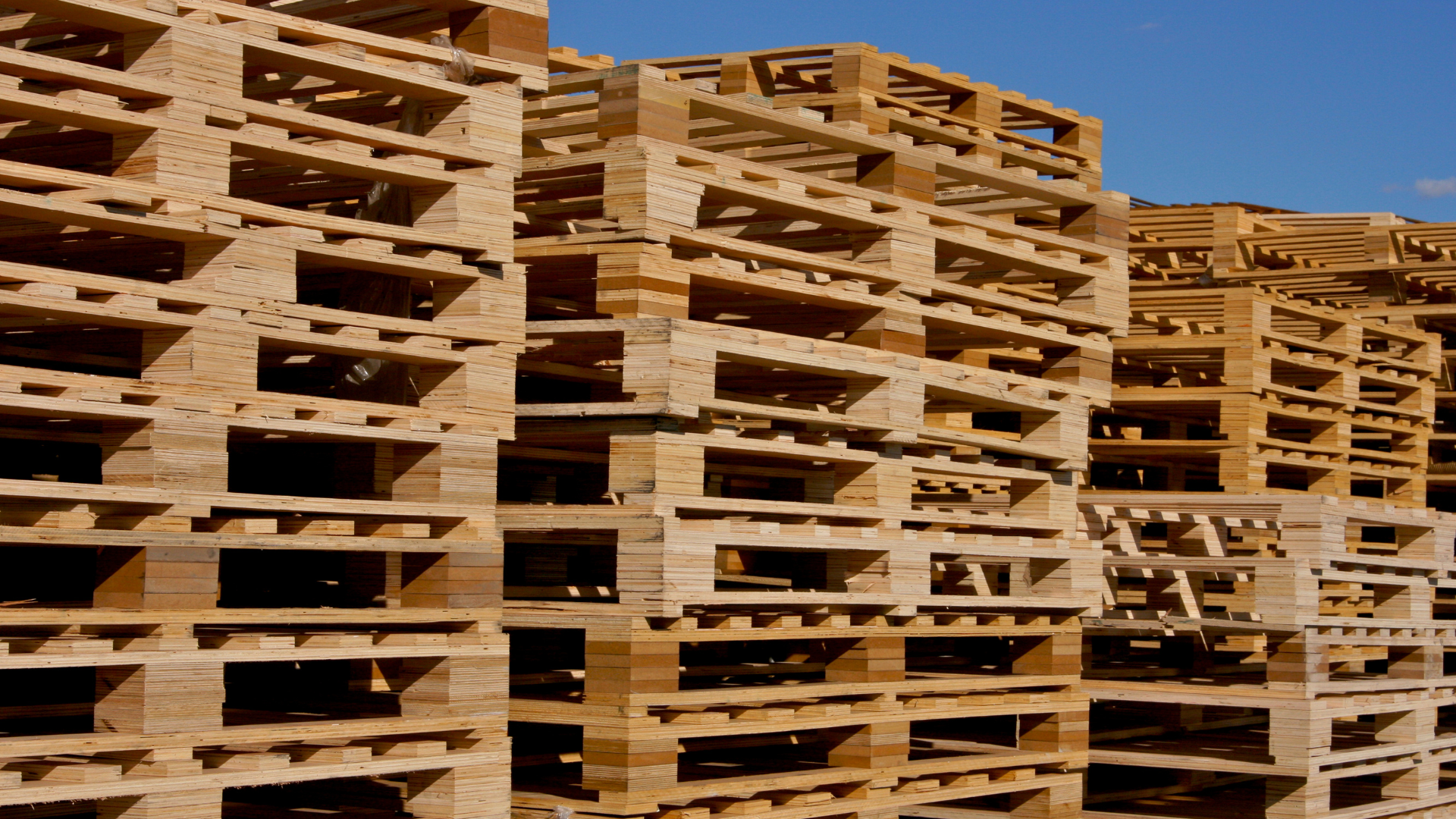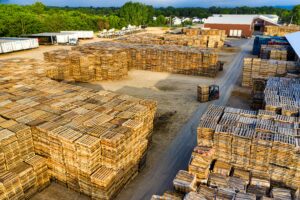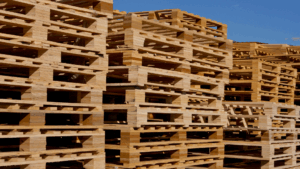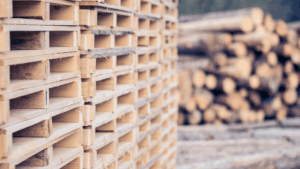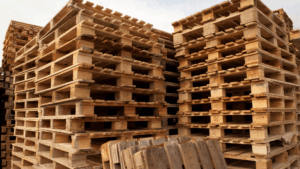Pallets are the unsung heroes of global logistics, carrying everything from food and furniture to electronics and building materials. However, not all pallets are created equal. Some are safe, durable, and compliant, while others can pose risks to your products, workers, and even customers. Knowing what pallets are not to use is essential for maintaining quality control, safety, and compliance within your business operations.
In this detailed guide, we’ll explore which pallets to avoid, why they can be hazardous, and how to spot unsafe materials or treatments. We’ll also highlight how trusted companies like AR Pallets LTD in Surrey, BC, help businesses across the Lower Mainland, Canada, source safe and reliable pallets for every need.
Understanding Pallet Safety
Before diving into which pallets to avoid, it’s important to understand why pallet safety matters. Pallets are the foundation of supply chain movement, supporting heavy loads and enduring constant handling. A weak or contaminated pallet can lead to:
- Product contamination or spoilage
- Workplace accidents or injuries
- Damage to equipment and shelving
- Regulatory violations during shipping or storage
Every pallet that enters your facility should meet quality standards for load capacity, sanitation, and material integrity.
Pallets You Should Avoid
Not all pallets are safe for reuse or repurposing. Below are the most common types of pallets you should avoid using in your business operations, especially if you handle sensitive or high-value goods.
Chemically Treated Pallets
Why to Avoid Them
Some older pallets were treated with toxic chemicals to prevent pest infestation or decay. The most notorious treatment is methyl bromide, a chemical fumigant once used to sterilize wooden pallets for export.
Prolonged exposure to these chemicals can lead to respiratory irritation and contamination of nearby goods, especially food or pharmaceuticals.
How to Identify
Look for a “MB” (Methyl Bromide) stamp on the pallet. Pallets marked with “MB” should never be reused or brought indoors. Instead, choose pallets marked “HT” (Heat Treated), which indicates they were sanitized using heat rather than chemicals.
Pallets with Signs of Contamination
Why to Avoid Them
Pallets that have been exposed to oil, paint, mold, or chemicals pose a serious contamination risk. Even a small spill absorbed into the wood can spread to the products placed on top.
Warning Signs
- Dark stains or discoloration
- Unusual odors (chemical or sour smell)
- Mold or mildew patches
- Sticky or greasy texture
Contaminated pallets should always be discarded or recycled through a professional service rather than reused.
Broken or Damaged Pallets
Why to Avoid Them
Cracked boards, missing nails, or splintered edges compromise pallet strength. A damaged pallet can collapse under weight, causing injuries or product loss.
Common Causes of Damage
- Overloading pallets beyond their rated capacity
- Exposure to excessive moisture
- Rough handling by forklifts or pallet jacks
How to Inspect
Always check for visible damage before loading. Pallets with loose boards, broken stringers, or uneven surfaces should be repaired or replaced immediately.
Unmarked or Non-Standard Pallets
Why to Avoid Them
Unmarked pallets often lack traceability or quality assurance. They might not meet industry standards for size, strength, or treatment, making them risky for transport, especially international shipping.
What to Look For
A safe pallet should have clear stamps or markings showing the treatment method (HT, DB), manufacturer, and country code. Unmarked pallets could come from unregulated sources or may have been exposed to harmful substances.
Pallets Exposed to Outdoor Elements
Why to Avoid Them
Pallets stored outside without proper covering can absorb moisture, develop mold, or warp. Prolonged exposure to rain and sun weakens the wood structure and encourages bacterial growth.
Risks of Outdoor Storage
- Weakened boards are prone to breakage
- Growth of fungi and mold
- Unpleasant odors that can transfer to products
- Increased pest infestation risk
Pallets should always be stored indoors in a dry, well-ventilated environment to preserve their quality and safety.
Pallets with Excessive Repairs
Why to Avoid Them
While repairing pallets is common and sustainable, over-repaired pallets may lose structural integrity. If a pallet has multiple replaced boards, added plates, or visibly uneven surfaces, it’s no longer reliable for heavy loads.
When to Retire a Pallet
- The pallet has been repaired more than twice.
- It no longer sits flat or stable on the floor.
- The fasteners are protruding or misaligned.
It’s safer to recycle overused pallets and replace them with new or refurbished ones from a trusted supplier.
Pallets Made from Inferior Materials
Why to Avoid Them
Low-quality or improperly treated wood can splinter easily, rot under moisture, or attract insects. Similarly, some low-cost plastic pallets may warp under heat or crack under pressure.
Material Issues to Watch Out For
- Softwood boards that bend easily
- Pallets with uneven thickness
- Lightweight plastic with poor durability
For heavy-duty or export use, always select pallets made from heat-treated hardwood or industrial-grade plastic.
How to Identify Safe Pallets
Choosing the right pallet begins with inspection and awareness. Here are a few guidelines to ensure safety and compliance:
Check the Markings
- HT (Heat Treated): Safe and compliant for international use.
- DB (Debarked): Indicates the wood was stripped of bark before use.
- IPPC Symbol: Shows that the pallet meets international phytosanitary standards.
Inspect the Surface
A clean, dry, and odor-free pallet is generally safe. Avoid any that show signs of chemical exposure or heavy staining.
Evaluate the Structure
Ensure the boards are intact, nails are flush, and the pallet sits flat on the ground. Stability and balance are key indicators of quality.
The Risks of Using Unsafe Pallets
Using the wrong pallet doesn’t just lead to damaged goods, it can affect your business reputation and compliance.
Health and Safety Concerns
Contaminated pallets can introduce toxins or allergens into your workspace, posing risks to employees and consumers.
Financial Costs
A single damaged pallet can result in product loss, shipping delays, and potential injury claims.
Regulatory Violations
For export shipments, using non-compliant pallets can lead to customs rejections or fines, disrupting supply chains and increasing costs.
Sustainable Pallet Management Practices
Avoiding unsafe pallets goes hand in hand with responsible pallet management. A few simple practices can make your operations more sustainable and cost-efficient:
- Partner with certified pallet suppliers who follow ISPM-15 and local safety standards.
- Regularly inspect pallets before use.
- Store pallets indoors in a clean, dry area.
- Implement a recycling or return program for damaged pallets.
Businesses across the Lower Mainland, Canada, including cities like Burnaby, Richmond, and Langley, benefit from working with reliable pallet companies that prioritize safety and sustainability.
Not all pallets are suitable for reuse or repurposing. Pallets treated with chemicals, exposed to contaminants, or showing signs of damage should always be avoided. Safe pallet practices protect your employees, your products, and your brand reputation.
By choosing high-quality pallets and working with reputable suppliers, you ensure that every shipment leaves your facility secure and compliant. For businesses across the Lower Mainland, sourcing pallets from experienced providers like AR Pallets LTD is the best way to guarantee both safety and reliability.
Reliable Pallet Supply You Can Count On
When it comes to safe, high-quality pallets, AR Pallets LTD stands out as a trusted name. Based at 12213 Industrial Rd, Surrey, BC V3V 3S1, Canada, they specialize in manufacturing, recycling, and supplying durable pallets that meet strict quality standards. Whether you need new, refurbished, or custom-built pallets, AR Pallets ensures every product is clean, safe, and compliant.For fast, reliable service across the Lower Mainland, you can contact AR Pallets LTD at (604) 367-7884 or send an email to info.arpallets@gmail.com. Their team is dedicated to helping businesses maintain safe and efficient shipping operations with pallets they can trust.

